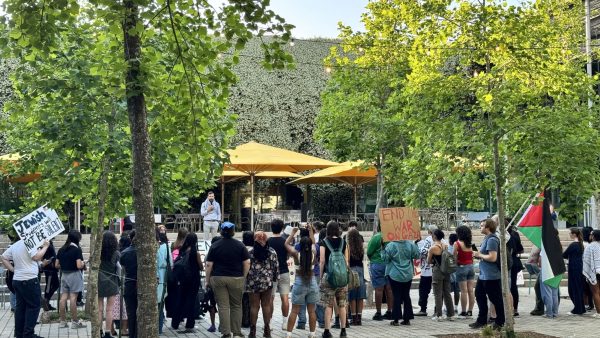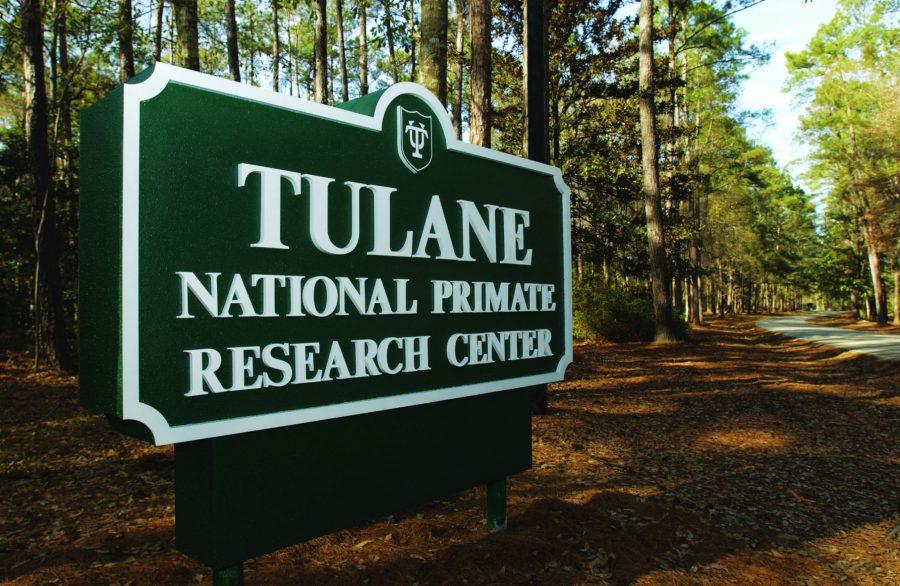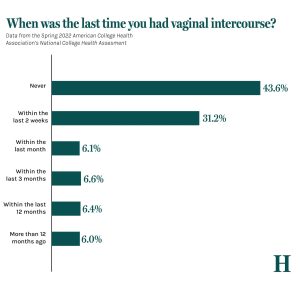Tulane Primate Center regains permit to work with select agents
The Tulane National Primate center regained its permit to work with selective agents in April, following a two-year suspension.
May 11, 2016
Following a two-year suspension, the Centers for Disease Control and Prevention has reinstated the Tulane National Primate Research Center’s permit to work with dangerous biological agents, the university announced on April 25.
Select agents include biological agents or toxins that the CDC says, “have the potential to pose a severe threat to public, animal or plant health, or to animal or plant products.”
TNRPC’s permit was suspended in 2014 after three monkeys were accidentally infected with Burkholderia psudeomallei. Following the infection, the three monkeys were euthanized for welfare concerns.
Burkholderia pseudomallei is a bacterium that causes Melioidosis, a disease that can lead to skin infections and pneumonia. According to a CDC press release, risk of the infection spreading is low.
“Burkholderia pseudomallei is not transmitted between humans or animals, and the risk of acquiring Melioidosis is low,” the CDC press release stated. “At this time, none of those workers at greatest risk of exposure or those whose blood samples indicated weakly reactive antibody levels have gotten sick.”
Following a joint investigation of TNRPC the CDC and the U.S. Department of Agriculture’s Animal and Plant Health Inspection Service released a statement isolating what caused the incident to be inappropriate use of personal protective equipment and that inspectors noted staff “frequently entered the select agent lab without appropriate protective clothing.”
Personal protective equipment consists of items that cover the wearer’s clothing and reduce chances of infection such as respiratory protection, gloves, masks and shoe covers. Director of TNPRC Andrew Lackner said that these problems have been addressed.
“At the beginning of the process they noted that the way personal protective equipment was being taken on and off was not where it needed to be,” Lackner said. “I don’t think there was anything that said people were not wearing PPE. What they said is they were not using it to optimum advantage. Now those problems have been fixed.”
Several safety measures have been put into place including unplanned inspections and the appointment of Biosafety Director Angela Birnbaum.
“I feel strongly that the research program at TNPRC is one of the finest I have seen, of the highest quality, and committed to safety for the personnel and the animals,” Birnbaum said. “In just receiving our reinstatement, our regulators recently commended us on how strong the program is. We improved standard operating procedures and developed new policies in collaboration with federal agencies to ensure a safe and secure environment.”
There are still additional biosafety measures that must be implemented before research with the agents begins. Lackner said that even though there is not currently a concrete timeline for when the research can begin again, it was clear that all the staff worked hard to regain the permit.
“Everyone felt in a much better position and much more empowered in what they were doing and that they had a much more significant role in the situation happening, which made them all feel better,” Lackner said. “We are ready to get back to our mission of protecting people from these agents that hopefully they will never see.
























Leave a Comment